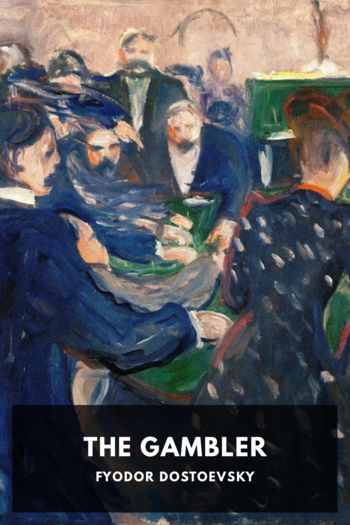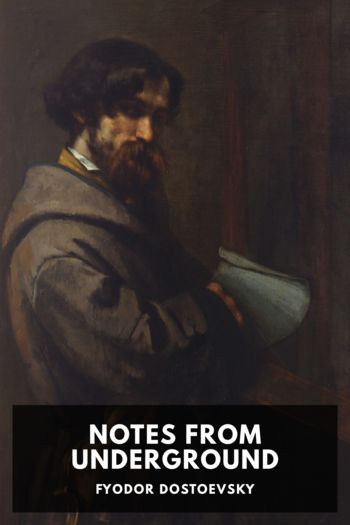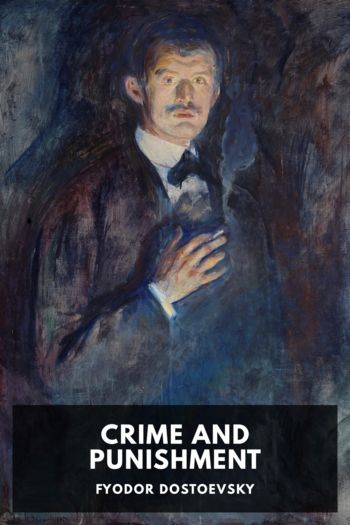Poor Folk by Fyodor Dostoevsky (best fiction books to read .TXT) 📕

- Author: Fyodor Dostoevsky
Book online «Poor Folk by Fyodor Dostoevsky (best fiction books to read .TXT) 📕». Author Fyodor Dostoevsky
Makar Dievushkin.
September 3rd: The Reason Why I Did Not Finish My Last Letter, Makar Alexievitch, Was That I Found It So Difficult to WriteSeptember 3rd.
The reason why I did not finish my last letter, Makar Alexievitch, was that I found it so difficult to write. There are moments when I am glad to be alone—to grieve and repine without anyone to share my sorrow: and those moments are beginning to come upon me with ever-increasing frequency. Always in my reminiscences I find something which is inexplicable, yet strongly attractive—so much so that for hours together I remain insensible to my surroundings, oblivious of reality. Indeed, in my present life there is not a single impression that I encounter—pleasant or the reverse—which does not recall to my mind something of a similar nature in the past. More particularly is this the case with regard to my childhood, my golden childhood. Yet such moments always leave me depressed. They render me weak, and exhaust my powers of fancy; with the result that my health, already not good, grows steadily worse.
However, this morning it is a fine, fresh, cloudless day, such as we seldom get in autumn. The air has revived me and I greet it with joy. Yet to think that already the fall of the year has come! How I used to love the country in autumn! Then but a child, I was yet a sensitive being who loved autumn evenings better than autumn mornings. I remember how beside our house, at the foot of a hill, there lay a large pond, and how the pond—I can see it even now!—shone with a broad, level surface that was as clear as crystal. On still evenings this pond would be at rest, and not a rustle would disturb the trees which grew on its banks and overhung the motionless expanse of water. How fresh it used to seem, yet how cold! The dew would be falling upon the turf, lights would be beginning to shine forth from the huts on the pond’s margin, and the cattle would be wending their way home. Then quietly I would slip out of the house to look at my beloved pond, and forget myself in contemplation. Here and there a fisherman’s bundle of brushwood would be burning at the water’s edge, and sending its light far and wide over the surface. Above, the sky would be of a cold blue colour, save for a fringe of flame-coloured streaks on the horizon that kept turning ever paler and paler; and when the moon had come out there would be wafted through the limpid air the sounds of a frightened bird fluttering, of a bulrush rubbing against its fellows in the gentle breeze, and of a fish rising with a splash. Over the dark water there would gather a thin, transparent mist; and though, in the distance, night would be looming, and seemingly enveloping the entire horizon, everything closer at hand would be standing out as though shaped with a chisel—banks, boats, little islands, and all. Beside the margin a derelict barrel would be turning over and over in the water; a switch of laburnum, with yellowing leaves, would go meandering through the reeds; and a belated gull would flutter up, dive again into the cold depths, rise once more, and disappear into the mist. How I would watch and listen to these things! How strangely good they all would seem! But I was a mere infant in those days—a mere child.
Yes, truly I loved autumn-tide—the late autumn when the crops are garnered, and field work is ended, and the evening gatherings in the huts have begun, and everyone is awaiting winter. Then does everything become more mysterious, the sky frowns with clouds, yellow leaves strew the paths at the edge of the naked forest, and the forest itself turns black and blue—more especially at eventide when damp fog is spreading and the trees glimmer in the depths like giants, like formless, weird phantoms. Perhaps one may be out late, and had got separated from one’s companions. Oh horrors! Suddenly one starts and trembles as one seems to see a strange-looking being peering from out of the darkness of a hollow tree, while all the while the wind is moaning and rattling and howling through the forest—moaning with a hungry sound as it strips the leaves from the bare boughs, and whirls them into the air. High over the treetops, in a widespread, trailing, noisy crew, there fly, with resounding cries, flocks of birds which seem to darken and overlay the very heavens. Then a strange feeling comes over one, until one seems to hear the voice of someone whispering: “Run, run, little child! Do not be out late, for this place will soon have become dreadful! Run, little child! Run!” And





Comments (0)